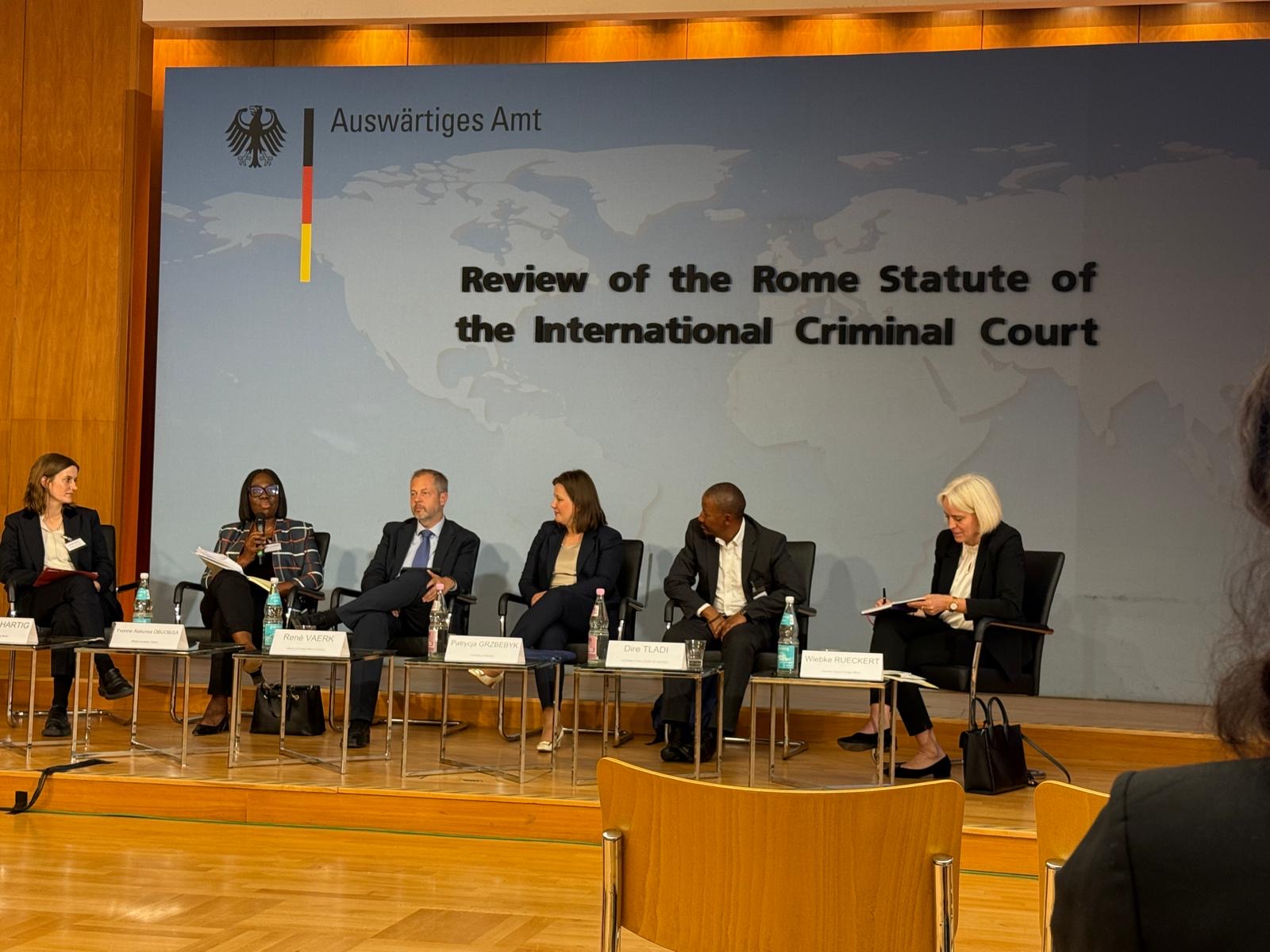Establishment of a National Human Rights Institution in the Czech Republic: A Report on Expanded Mandates and Alignment with Sustainable Development Goals
1.0 Introduction: Strengthening National Institutions for Human Rights
The Czech Republic has amended the Act on the Public Defender of Rights, significantly expanding the office’s mandate to establish a comprehensive, independent National Human Rights Institution (NHRI). This strategic development aligns the nation with the majority of European states and marks a critical step towards fulfilling commitments under the 2030 Agenda for Sustainable Development, particularly SDG 16: Peace, Justice and Strong Institutions. The creation of an effective, accountable, and inclusive national institution dedicated to human rights is a direct implementation of Target 16.6.
2.0 Expanded Scope and Systemic Oversight
The transformation of the Public Defender of Rights office represents a fundamental shift from a limited to a comprehensive human rights framework. The institution’s new role is to function as a “watchdog,” providing independent oversight of all state activities from a human rights perspective.
2.1 Key Changes in Mandate
- Previous Scope: The office’s authority was confined to specific areas, such as discrimination and the rights of persons deprived of their liberty.
- Current Scope: The NHRI will now monitor, evaluate, and report on the full spectrum of human rights, ensuring a holistic and unrestricted approach to their protection.
This expansion is crucial for promoting the rule of law and ensuring equal access to justice for all, a core principle of SDG 16.3. By addressing systemic issues, the NHRI will contribute to the development of non-discriminatory laws and policies, as called for in SDG 16.b.
3.0 Core Functions and Contributions to the SDGs
The NHRI’s primary tasks are centered on prevention and systemic protection, distinguishing its proactive role from the reactive function of the judiciary. Its establishment strengthens the national framework for protecting the rights of all individuals, with a particular focus on the most vulnerable, thereby advancing SDG 10: Reduced Inequalities.
3.1 Operational Objectives of the NHRI
- Preventive Action: To act independently and proactively to identify and mitigate risks of rights violations before they occur.
- Systemic Analysis: To draw attention to systemic problems and cooperate with civil society to address root causes of human rights challenges.
- Policy Recommendation: To issue expert recommendations to the Government and Parliament, informed by international best practices.
- Public Awareness: To raise public consciousness regarding the importance of human rights, contributing to SDG 4.7 (Education for sustainable development and global citizenship).
- Comprehensive Monitoring: To monitor the overall state of human rights within society, ensuring no one is left behind.
By focusing on the rights of all, including the most vulnerable, the NHRI directly supports SDG 10.2, which aims to empower and promote the social, economic, and political inclusion of all, irrespective of age, sex, disability, race, ethnicity, origin, religion, or economic or other status.
4.0 Institutional Outlook
The institution, to be renamed the Office of the Public Defender of Rights and the Children’s Rights Defender, will leverage its extensive experience to implement this broader mandate. The establishment of the NHRI is viewed as an opportunity to fortify the protection of rights for every person in the Czech Republic, reinforcing the nation’s commitment to building a just, peaceful, and inclusive society in line with the Sustainable Development Goals.
1. Which SDGs are addressed or connected to the issues highlighted in the article?
-
SDG 16: Peace, Justice and Strong Institutions
- The article’s central theme is the strengthening of a national institution, the Public Defender of Rights, by transforming it into a National Human Rights Institution (NHRI). This directly aligns with SDG 16, which focuses on building “effective, accountable and inclusive institutions at all levels.” The text states the goal is to “create comprehensive, independent oversight of human rights in the Czech Republic.”
-
SDG 10: Reduced Inequalities
- The article mentions that the Public Defender’s previous scope included tackling “discrimination” and that the new, expanded role aims to strengthen “the protection of the rights of all people in the Czech Republic, including those who are most vulnerable.” This commitment to protecting vulnerable groups and combating discrimination is a core component of SDG 10.
2. What specific targets under those SDGs can be identified based on the article’s content?
-
Target 16.6: Develop effective, accountable and transparent institutions at all levels.
- The entire article describes the process of making the Office of the Public Defender of Rights a more effective institution. The text explains that the office will now “monitor and evaluate all state activities from a human rights perspective without any restrictions” and function as a “watchdog of human rights,” which points to developing a more effective and accountable body.
-
Target 16.a: Strengthen relevant national institutions… for building capacity at all levels.
- The article explicitly states, “By establishing a National Human Rights Institution, we will join the ranks of other European states which already have one.” It also mentions the NHRI is supposed to “bring examples of good practice from abroad.” This demonstrates the strengthening of a national institution, partly through international cooperation and best practices.
-
Target 16.b: Promote and enforce non-discriminatory laws and policies for sustainable development.
- The article notes that the Public Defender’s office previously protected rights in areas like “discrimination.” The new, broader mandate allows the NHRI to “draw attention to systemic problems” and “issue expert recommendations to the Government and Parliament,” which are key actions in promoting and enforcing non-discriminatory policies.
-
Target 10.3: Ensure equal opportunity and reduce inequalities of outcome, including by eliminating discriminatory laws, policies and practices.
- The NHRI’s role in monitoring state activities, identifying “systemic problems,” and providing “expert recommendations” directly contributes to eliminating discriminatory practices. The focus on protecting “those who are most vulnerable” is central to ensuring equal opportunity and reducing inequality.
3. Are there any indicators mentioned or implied in the article that can be used to measure progress towards the identified targets?
-
Existence of an independent National Human Rights Institution (NHRI).
- This is the primary outcome discussed in the article. The text announces, “The Czech Republic has joined the majority of European states which have established an independent, national human rights institution (NHRI).” The very establishment of this institution is a key indicator of progress towards Target 16.a.
-
Issuance of expert recommendations and reports.
- The article states a key function of the NHRI is to “issue expert recommendations to the Government and Parliament” and to “draw attention to systemic problems.” The number and scope of these recommendations and reports can serve as an indicator of the institution’s activity and effectiveness in fulfilling its mandate under Targets 16.6 and 16.b.
-
Public awareness activities.
- The article identifies that “An important part of that work will also be raising public awareness of the importance of human rights.” The number and reach of campaigns or educational initiatives would be a direct indicator of this activity.
4. SDGs, Targets and Indicators Table
| SDGs | Targets | Indicators (Identified in the Article) |
|---|---|---|
| SDG 16: Peace, Justice and Strong Institutions |
|
|
| SDG 10: Reduced Inequalities |
|
|
Source: romea.cz







